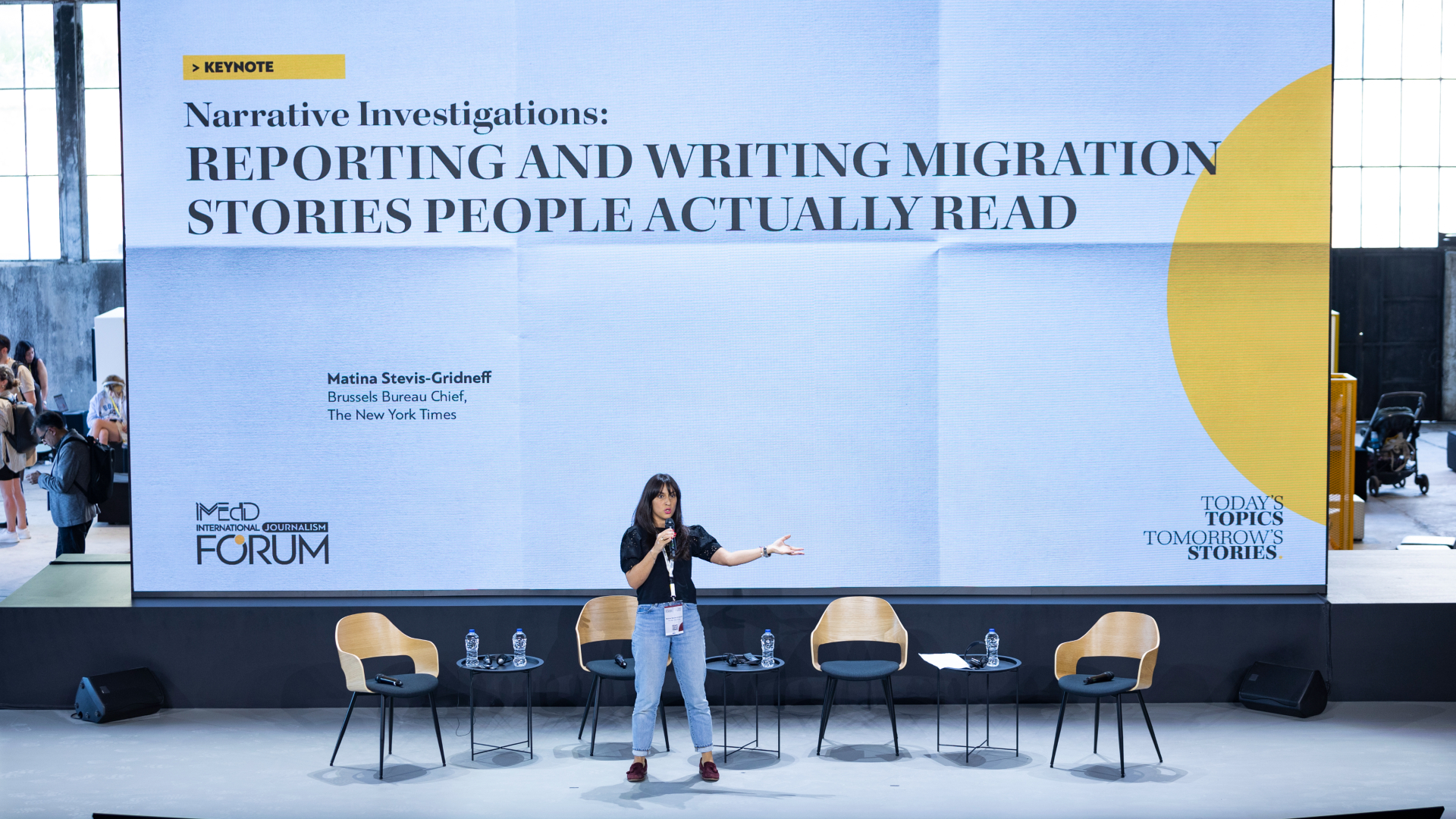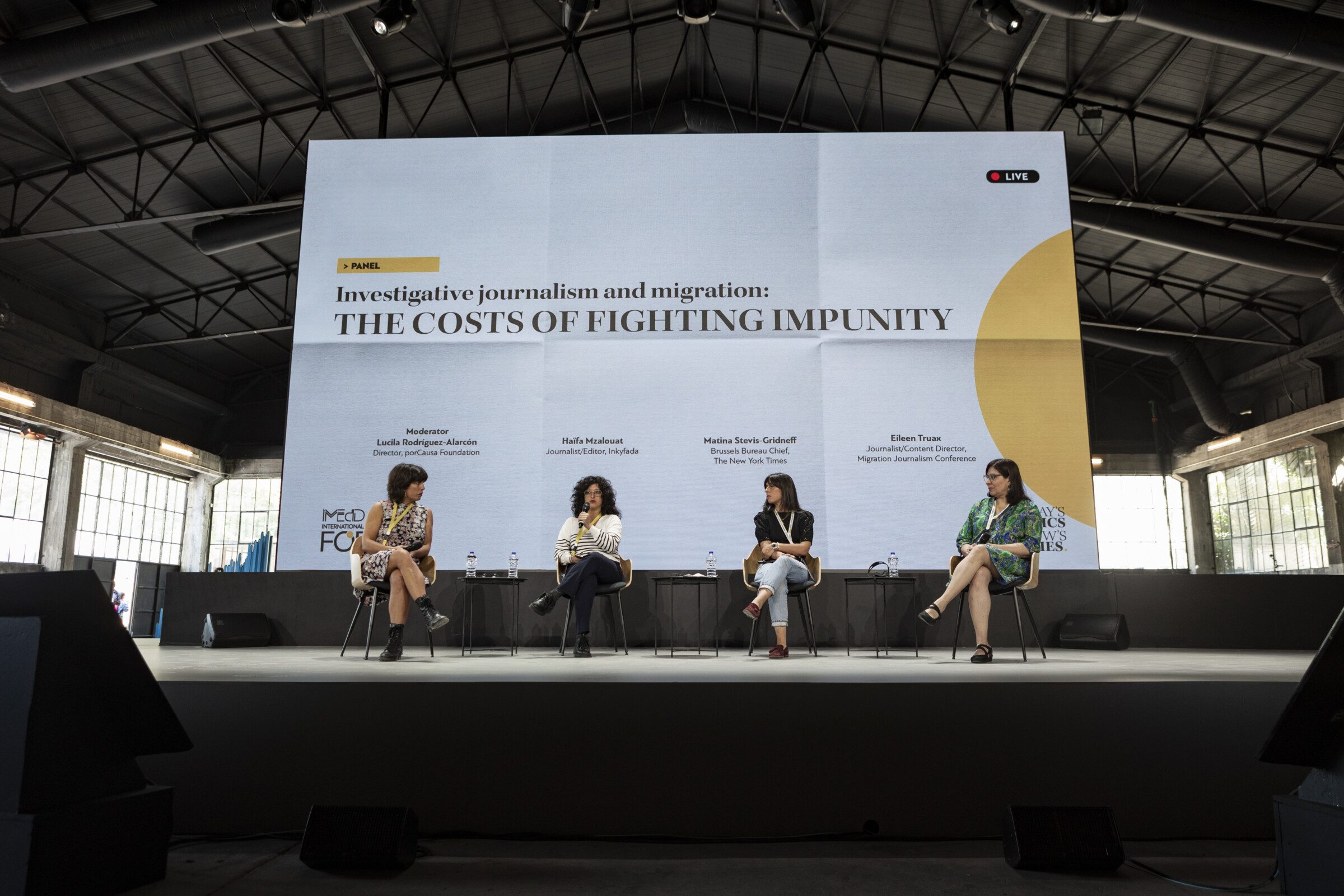New York Times journalist, Matina Stevis, talks to iMEdD about an important new decision by the European Union’s General Court and the importance of holding those in power accountable.
At the beginning of 2021, Ursula von der Leyen faced a difficult set of circumstances. In addition to the political headache of finalizing Brexit, the president of the European Commission had to deal with delays in receiving vaccines for the Coronavirus disease (COVID-19).
In April of that year, it became known that a deal to receive 1.8 million doses from Pfizer and BioNTech was forthcoming. Although von der Leyen does not often speak to the media, Matina Stevis, then the Brussels bureau chief for the New York Times, landed an interview with the top Commission official.
The NYT article noted that personal diplomacy played a key role in the vaccine deal –von der Leyen had been exchanging personal messages and calls with Pfizer’s CEO, Albert Bourla, for a month.
The latter also spoke to the NYT. He emphasized the establishment of a relationship with von der Leyen and confirmed that they had exchanged messages on their personal phones. “Leaders from all over the world, presidents, prime ministers, kings, even secretaries-general of organizations, were contacting me,” said Bourla.
Stevis requested access to the text messages regarding vaccines from the Commission. The request was rejected, but no convincing explanation was provided –neither for the rejection nor for the Commission’s argument that the messages were not important.

The journalist and the American newspaper appealed to the European Court, which recently issued an important ruling regarding the role of journalists and the accountability of individuals in positions of power.
“Our first argument was that there is significant public interest. We have exhausted all other means of accessing the messages and the Commission has wrongly denied our request,” Stevis, the American newspaper’s current Canadian bureau chief, explained to iMEdD in a call from Toronto.
“According to the Commission’s claim, the content of the text messages was temporary, so they cannot, in fact, be considered official documents,” the journalist notes.
“In this way, however, the definition of an official document is narrowed down and we argue that it should be judged based on its content, not the platform through which it is sent. Other courts in the US and England have already resolved this issue.”
“Never a Good Time To Break Down” – Journalists in Gaza Continue To Report Amidst Fear for Their Lives

Four Gazan journalists reflect on how it feels to be reporting after nearly 20 months of war.
Stevis had submitted a request to the Commission for access to the von der Leyen-Bourla texts under Regulation 1049/2001, the European Freedom of Information legislation, before bringing the case to the European Court. The request was denied twice.
Due to the seriousness of the case, the European Court referred it to a plenary session last November.
The Commission’s lawyers questioned whether any messages were exchanged. They stopped contesting it after facing pressure from the judges during the proceedings. The second line of defense was that, even if text messages were exchanged between Ursula von der Leyen and Albert Bourla, they were irrelevant to this particular case because they were digital material.
Another argument was that senior EU officials change mobile devices every two and a half years for security reasons, so the texts would have probably been lost. This argument also failed in the European Court.
The decision, issued in mid-May, is considered crucial for ensuring access to information and holding those in positions of power accountable. “Essentially, the decision tells the European Commission, “If you insist on denying access to the documents, you must justify that denial more effectively. The excuse that these are direct messages is not an argument for this denial”,” Stevis explained to iMEdD.
Furthermore, as stated in the Court’s notice, the Commission “failed to explain in a plausible manner” why it believed the messages exchanged regarding such an important issue –the supply of vaccines for a public health crisis– did not contain important information.
“We are satisfied because it sets a precedent,” the journalist notes.
The European Union has a legal framework for FOI, most of which is used for corporate disputes related to competition regulations.
“The same framework, which is the tool used to hold the authorities accountable, withers away when it comes to accountability cases and therefore, de facto, does not apply,” Stevis notes.

“We are now in the Signalgate era. We know that the European Commission has issued a directive for its employees to enable the self-destruct (option) for their messages. We’re trying to push the system. I am not a lawyer, but from a journalistic point of view, I would say that our success (editor’s note: in the von der Leyen-Bourla case) is that they know we are watching them.”
For most journalistic organizations, going to the European Court is a costly affair. “The road was painful and long, it took three years and many working hours to get the European Court’s decision, but we achieved a result,” says Matina Stevis.
“The court proved that it is available for such matters when asked for. You just need to ask the question.”
Translation: Evita Lykoy
Watch the panel entitled “Investigative journalism and migration: the costs of fighting impunity”, in which Matina Stevis participated at the iMEdD International Journalism Forum 2023:

